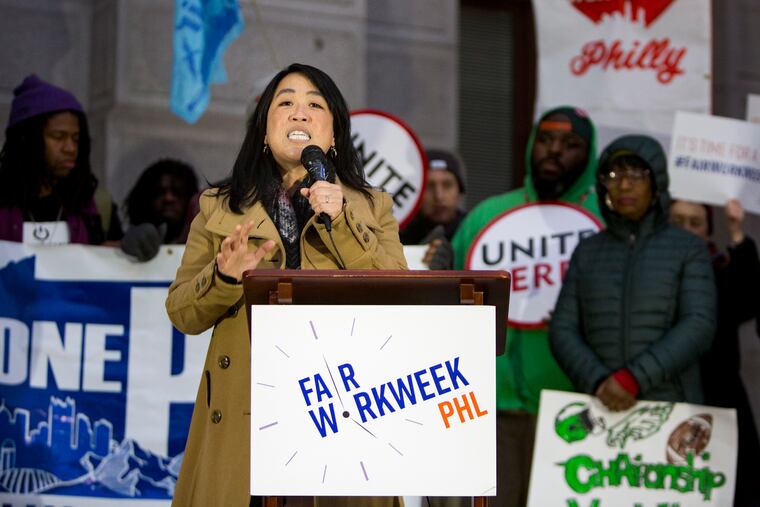Philly moms need more control over their work schedules | Opinion
Moms and dads who don't know when they will work from one week to the next aren't able to plan regular medical visits for their children, because they are forced to choose between picking up a shift at work and keeping a doctor's appointment.

Philadelphia's moms are suffering from a higher-than-average pregnancy-related death rate, and that burden has been disproportionately born by African American women. Philadelphia's moms are arriving at pregnancy sicker, and with chronic health conditions that require a higher level of care. A New York Times Magazine article from earlier this year found that black women — even wealthy ones — were more likely to die from pregnancy-related causes than women of other races.
A study released earlier this year showed that an overwhelming majority of the city's 130,000 service workers experience conflicts between their work schedules and their family care-giving responsibilities. That largely occurs because many large employers have changed the way they write schedules, in order to provide more flexibility for managers.
On June 14, eight members of City Council (led by Councilwoman Helen Gym) introduced a bill to create a fair scheduling law for the city's retail, food service and hospitality workers. As the senior director of policy for the Maternity Care Coalition (MCC), I see that our clients struggle every day to make doctor's appointments, often because they don't know when they will be called in to work.
One MCC client described her challenges:
"I work two part-time jobs to support myself and my 3-month-old infant. My one employer is constantly rearranging my schedule at the last minute and often shorting shifts. I have to pay for public transit to work whether it's for three hours or six hours. I have to pay for babysitting for my evening job, which sometimes costs more than what I earn. I am trying to breastfeed my baby and one employer will accommodate pumping at work but the other won't, so often I don't eat during my break so I can pump. I don't know my work schedule until it is posted on a Sunday. I have missed several well baby checkups because both employers will not accommodate my time-off requests for medical appointments ahead of time. I feel overwhelmed most of the time but I will keep trying to be a good mom."
Unfortunately, the side effect of new scheduling systems has been to leave workers without much advance notice of their schedules, which has a disproportionate impact on women who are pregnant or have infants — right when they need access to stable medical care the most. Moms and dads who don't know when they will work from one week to the next aren't able to plan regular medical visits for their children, because they are forced to choose between picking up a shift at work and keeping a doctor's appointment.
We owe it to Philadelphia's moms and to the kids who make up our city's future to ensure that they have the best chances at success. Passing sensible "Fair Workweek" legislation in the fall will give more working moms the ability to maintain their health, and their children's health. I commend Councilwomen Gym, Maria Quiñones-Sánchez, and Jannie Blackwell, and Councilmen William Greenlee, Curtis Jones Jr., Bobby Henon and Mark Squilla for the vision they have shown in introducing this bill, and urge the rest of Council to support it.
Rosemarie Halt is the senior director of policy for the Maternity Care Coalition.